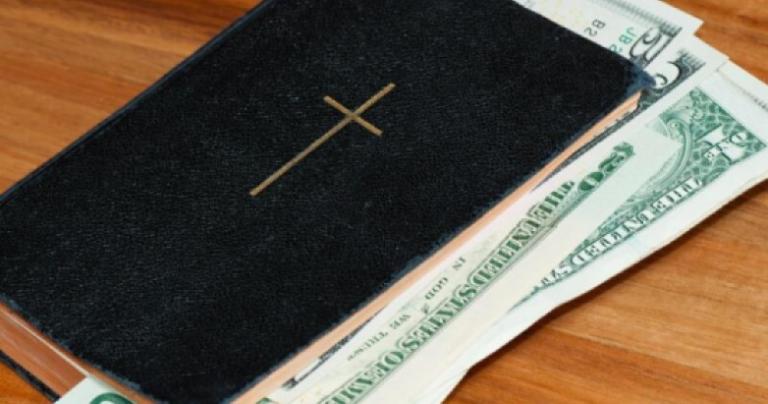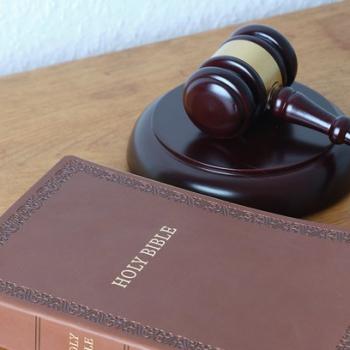
By Lyle David Solomon
Biblical Teachings About Borrowing Money
The Bible doesn’t say that it’s a sin to borrow money from creditors. But it makes it clear that you should pay off your debts. This particular Bible verse is enough to prove the point:
“The wicked borrows and does not pay back, but the righteous is gracious and gives.” (Psalm 37:21)
You have a legal obligation to pay off your debts. But apart from your legal obligations, the Bible points out that you have moral obligations to pay back your creditors.
When you are taking out a personal loan, you sign an agreement. You promise to pay off the loan within the loan term. According to the Bible, when you make a promise, you should keep it. There is no doubt about it:
“It is better that you should not vow than that you should vow and not pay.” (Ecclesiastes 5:5)
This particular Bible verse says that if you have promised to pay off debt, you should do it. Otherwise, don’t make a promise. In other words, don’t borrow money from creditors. Now, the question is, why does the Bible stress the importance of paying off debts? There is a valid reason behind it. The following Bible verse will answer this question:
“The rich rules over the poor, and the borrower is the slave of the lender.” (Proverbs 22:7)
When you borrow money from a lender, you remain obligated to them as long as you have an outstanding balance. The lender rules over you. The lender charges interest rates on your loans, and you have to pay them. If you don’t, they can take several actions against you. Lenders can charge extra interest on your loan. They can impose fines and late fees. If you still don’t repay your loan, the lender can file a lawsuit against you.
And is there anything you can do about it?
No. Either you have to pay off the debt, or you have to deal with creditors in court. Yes, there are a few debt relief programs like debt settlement, debt consolidation, debt management, bankruptcy, etc. But even then, you have to pay a portion of the debt. You can’t avoid it. As a true Christian, you have only one master, and that is God. The Bible has given the reason for this, too:
“No one can serve two masters. Either you will hate the one and love the other, or you will be devoted to the one and despise the other. You cannot serve both God and money.” (Matthew 6:24 NIV)
If you want to serve God wholeheartedly, pay off your debts as soon as you can. When you are in debt, all your thoughts, time, and energy are consumed by it. The Bible doesn’t say that you can’t borrow money. It’s not unethical to apply for credit cards or loans. But the Bible says that you should handle your debts and money responsibly. If you live a frugal life and pay your bills on time, you can lead a debt-free life. You can serve God as a true Christian. To live a truly free life, I would like to point out this verse from the Bible:
“Let your life be free from love of money but be content with what you have, for he has said, ‘I will never forsake you or abandon you'” (Hebrews 13:5).
What Else Does the Bible Say About Having Debts?
The Bible is a storehouse of information. Whenever you need any guidance, go back to the Holy Bible. You will get the best guidance from there. For example, look at this verse:
“Which of you wishing to construct a tower does not first sit down and calculate the cost to see if there is enough for its completion?” (Luke 14:28)
Before you buy a house, what should you do? You should calculate how much you have saved and then decide your budget for purchasing a home. If you don’t, you risk buying a house you can’t afford and ending up with enormous debt. The Bible has already warned you against this. Now, it’s up to you.
Apart from that, the Bible has clear guidance for co-signers as well. Read this Bible verse first:
“Whoever puts up security for a stranger will surely suffer harm, but he who hates striking hands in pledge is secure.” (Proverbs 11:15)
The Bible doesn’t encourage people to cosign for a loan if there is any choice. However, if you have to cosign for your adult children, you should save money and be fully prepared to pay off your debts. Other than debtors, the Bible has said a few things about interests charged by creditors:
“If you lend money to any of my people with you who is poor, you shall not be like a moneylender to him, and you shall not extract interest from him.” (Exodus 22:25-27)
Although the Bible has asked creditors not to charge interest on the loans issued to poor people, no one actually does it. How many credit card companies do you know that offer 0% interest rate credit cards to poor people? There are balance transfer cards that come with a 0% interest rate. But that is available for only 12 to 18 months. You have to pay double interest after that.
Does the Bible Say That God Will Bail You Out of Debt?
Many Christians believe that when they are in debt, the Lord Jesus will bail them out. They refer to this particular verse for the sake of argument:
“And my God will supply every need of yours according to his riches in glory in Christ Jesus” (Philippians 4:19).
Yes, the Almighty God will fulfill all your needs in the best possible manner. But the Bible has never said that God will bail you out of debt. You have borrowed money for your self-interests. Now, you have to think about how to pay off debts. The next Bible verse proves my point:
“She went and told the man of God, who said, ‘Go sell the oil to pay off your creditor; with what remains, you and your children can live'” (2 Kings 4:7)
Are you wondering how you will get out of debt .and be a true Christian? Wait. The Bible has an answer to this question, as well. Look at the following verse in the Bible:
“On the first day of every week each one of you is to put aside and save, as he may prosper so that no collections be made when I come.” (Corinthians 16:2)
Set aside an amount from your paycheck every week or month. Use that money to pay your bills. If you make your bill payments on time, you will not have debts. Creditors will be happy, and they will not assign your accounts to debt collection agencies. You can lead a stress-free life and devote yourself to the service of God.
Although the Bible doesn’t say that God will bail you out of debt, it does say that creditors will forgive your debts after 7 years. Read this verse carefully:
“At the end of every seven years you shall grant a remission of debts. This is the manner of remission: every creditor shall release what he has loaned to his neighbor; he shall not exact it of his neighbor and his brother because the Lord’s remission has been proclaimed.” (Deuteronomy 15:1-2)
In the modern era, the federal government allows you to file Chapter 7 bankruptcy and discharge your debts once in eight years. The court declares the release of debts after you have completed the bankruptcy process.
Final Thoughts on Debt
Finally, the Bible doesn’t say that it is unethical to have debts. Instead, it warns about the trouble debt can bring. Read this Bible verse once:
“Don’t be one of those who enter agreements, who put up security for loans. If you have nothing with which to pay, even your bed will be taken from under you.” (Proverbs 22:26-27)
If you can’t pay off your debts, it’s certain creditors will take everything from you. They will win judgments against you from the court and garnish your wages. Others will impose a lien on your properties.


















